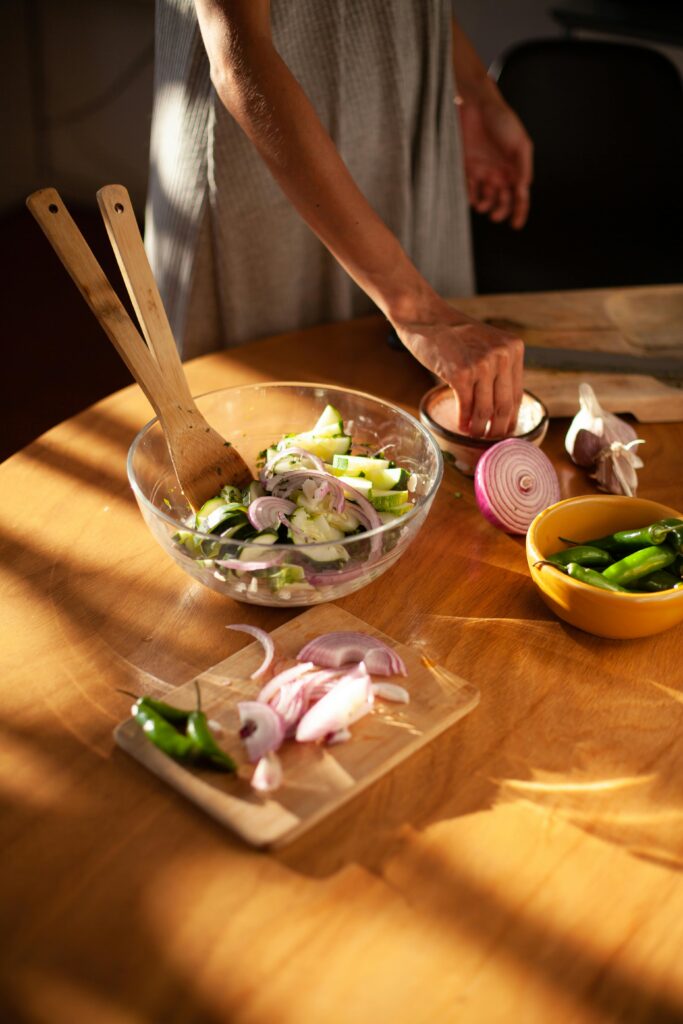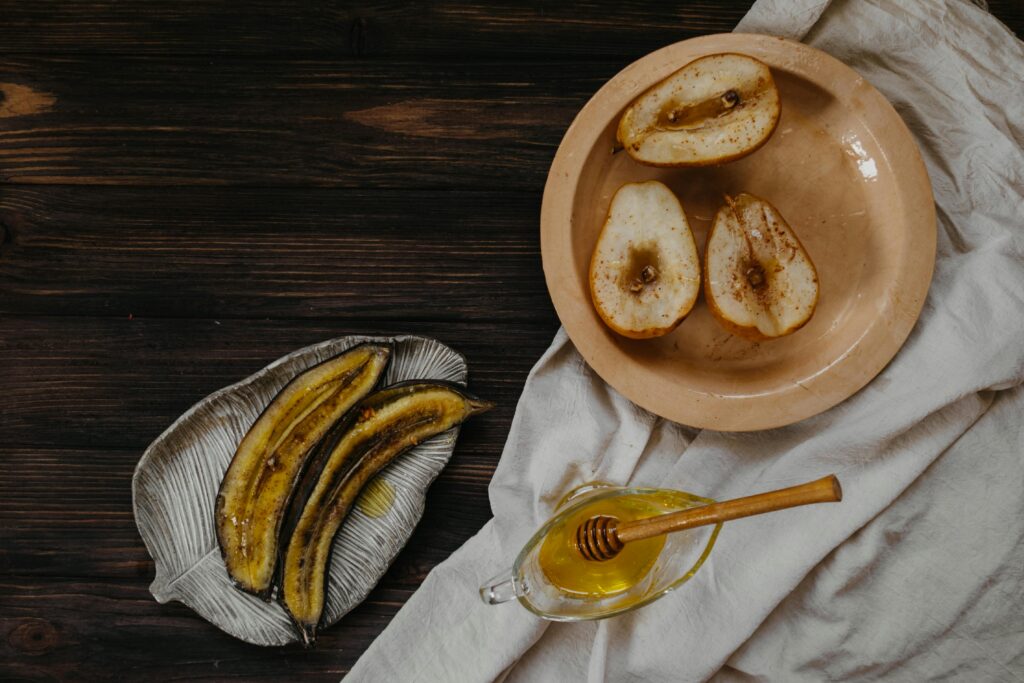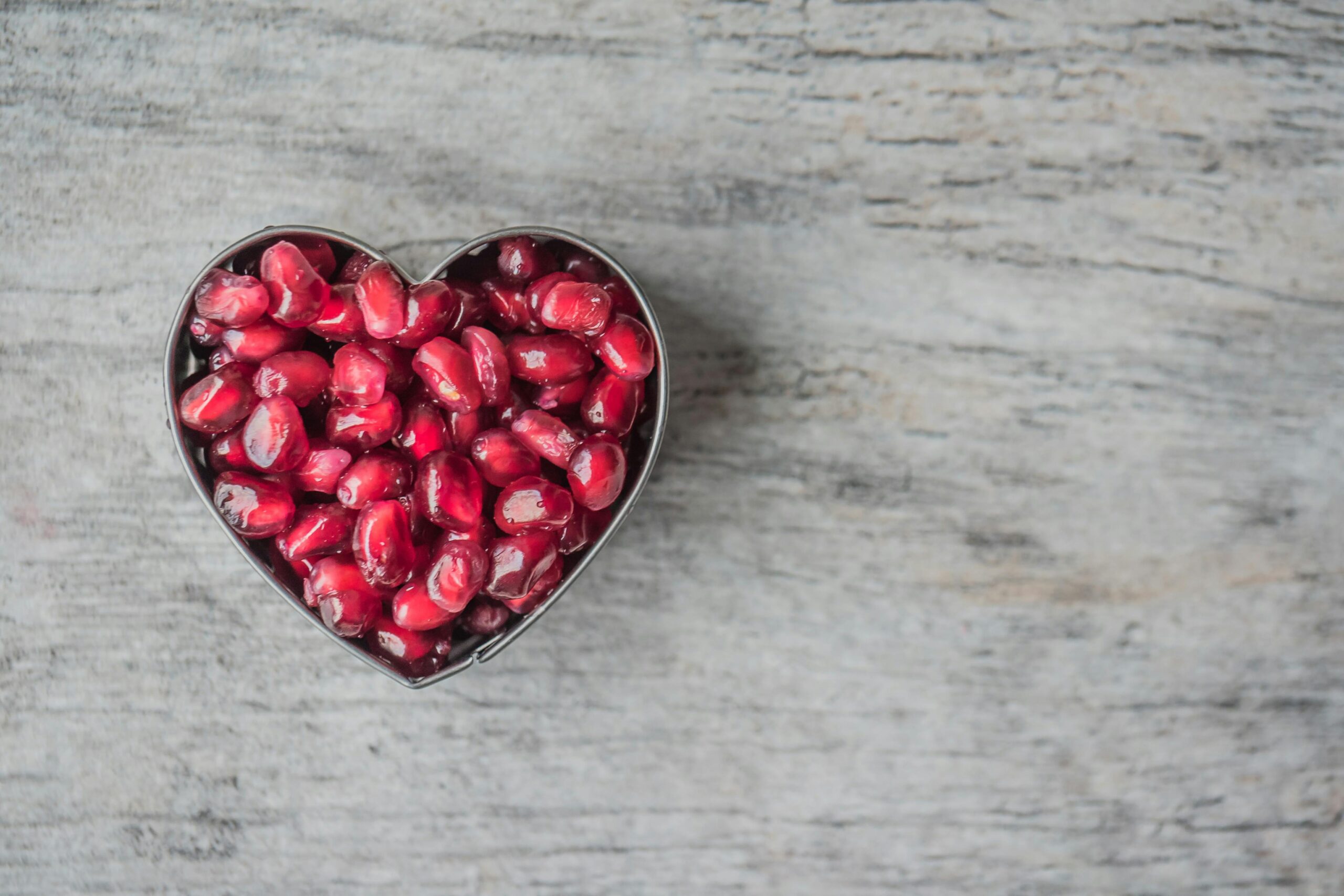
Written By Dietitian Noor Ateeq
Medically Reviewed by Dn.Azwa Nadeem
Heart health is vital for overall well-being, and making informed dietary choices can play a significant role in preventing heart disease. A heart-healthy diet typically includes a variety of fruits, vegetables, whole grains, lean proteins, and healthy fats. In this post, we’ll explore key dietary components for heart health and share delicious recipes to incorporate into your daily meals.
Key Components of a Heart-Healthy Diet
- Fruits and Vegetables: Rich in vitamins, minerals, and antioxidants, these foods help reduce inflammation and lower blood pressure. Aim for a colorful variety to maximize nutrient intake.
- Whole Grains: Foods like brown rice, quinoa, and whole grain bread are high in fiber, which can help lower cholesterol and maintain healthy blood sugar levels.
- Lean Proteins: Include sources like fish, poultry, beans, and legumes. Fatty fish, such as salmon and mackerel, are particularly beneficial due to their omega-3 fatty acids, which support heart health.
- Healthy Fats: Opt for unsaturated fats found in olive oil, nuts, and avocados. These can help lower bad cholesterol levels while providing essential nutrients.
- Low Sodium: Reducing sodium intake can help lower blood pressure. Season meals with herbs and spices instead of salt.

Heart-Healthy Recipes
1. Mediterranean Quinoa Salad
Ingredients:
- 1 cup quinoa
- 2 cups water
- 1 cup cherry tomatoes, halved
- 1 cucumber, diced
- 1/2 red onion, finely chopped
- 1/2 cup kalamata olives, pitted and sliced
- 1/2 cup feta cheese, crumbled
- 1/4 cup fresh parsley, chopped
- Juice of 1 lemon
- 3 tablespoons olive oil
- Salt and pepper to taste
Instructions:
- Rinse quinoa under cold water. In a pot, bring 2 cups of water to a boil. Add quinoa, reduce heat, cover, and simmer for about 15 minutes or until water is absorbed. Fluff with a fork and let cool.
- In a large bowl, combine cherry tomatoes, cucumber, red onion, olives, feta, and parsley.
- In a small bowl, whisk together lemon juice, olive oil, salt, and pepper.
- Add cooled quinoa to the vegetable mixture and drizzle with dressing. Toss to combine. Serve chilled or at room temperature.

2. Baked Salmon with Lemon and Herbs
Ingredients:
- 4 salmon fillets
- 2 tablespoons olive oil
- Juice of 1 lemon
- 2 cloves garlic, minced
- 1 teaspoon dried oregano
- 1 teaspoon dried thyme
- Salt and pepper to taste
- Lemon slices for garnish
Instructions:
- Preheat the oven to 400°F (200°C). Line a baking dish with parchment paper.
- In a small bowl, mix olive oil, lemon juice, garlic, oregano, thyme, salt, and pepper.
- Place salmon fillets in the baking dish and brush with the olive oil mixture.
- Bake for 15-20 minutes or until the salmon flakes easily with a fork.
- Garnish with lemon slices and serve with steamed vegetables or a side salad.

3. Chickpea and Spinach Stew
Ingredients:
- 1 tablespoon olive oil
- 1 onion, chopped
- 2 cloves garlic, minced
- 1 teaspoon cumin
- 1 can (15 oz) diced tomatoes
- 1 can (15 oz) chickpeas, drained and rinsed
- 4 cups fresh spinach
- Salt and pepper to taste
- Fresh cilantro for garnish
Instructions:
- In a large pot, heat olive oil over medium heat. Add onion and sauté until translucent, about 5 minutes.
- Add garlic and cumin, cooking for another minute until fragrant.
- Stir in diced tomatoes and chickpeas, bringing the mixture to a simmer. Cook for about 10 minutes.
- Add fresh spinach, cooking until wilted. Season with salt and pepper.
- Serve warm, garnished with fresh cilantro. Enjoy with whole grain bread or over brown rice.

Conclusion
Incorporating heart-healthy foods into your diet doesn’t have to be boring or bland. With these delicious recipes, you can enjoy meals that support your cardiovascular health while tantalizing your taste buds. Remember to stay active and maintain regular check-ups with your healthcare provider to monitor your heart health.
his blog provides general guidelines for a healthier lifestyle and weight loss, aimed at making things easier for you. However, for personalized advice regarding health issues or specific dietary needs, please consult your doctor or a registered dietitian. Your health is important, and professional guidance is always recommended!
Reviewed by DT Noor Ateeq
A medical-certified dietitian with a passion for holistic health, Noor brings years of expertise in nutrition and wellness and also for weight loss. Her insightful approach empowers individuals to make informed dietary choices that enhance their overall well-being.
Medically Reviewed by DT Azwa Nadeem
Also a medical-certified dietitian, Azwa has a keen eye for detail and a deep understanding of nutritional science. She is committed to helping people achieve their health goals and weight loss goals through innovative strategies and an encouraging demeanor.
Both Noor Ateeq and Azwa Nadeem have provided invaluable insights, ensuring this blog offers practical and for their clients weight loss journey.



